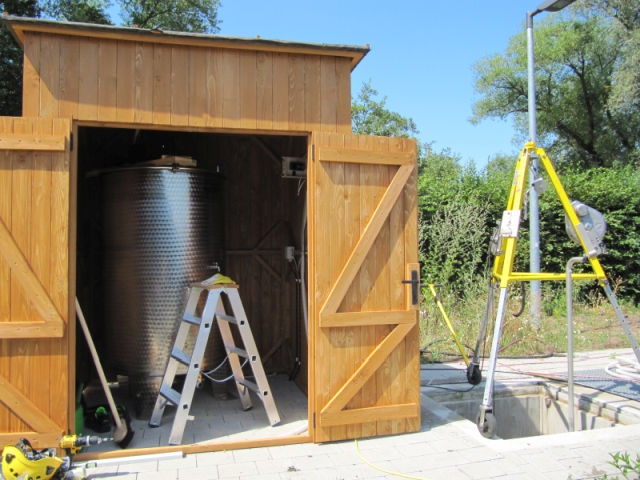Qualitative Investigation of Combined Sewer Overflows in Bavaria
- contact:
M. Eng. Jan Philip Nickel
- funding:
Bayerisches Staatsministerium für Umwelt und Verbraucherschutz
Bayerisches Landesamt für Umwelt - startdate:
09/2015
- enddate:
12/2020
Abstract
Investigations of combined sewer overflows (CSO) in Bavaria were carried out over a period of three years. At 10 CSO, including six sedimentation tanks, two first flush retention tanks and two sewers with extended storage capacity, a total of 164 event composite samples were taken using large volume samplers and analysed for conventional water quality parameters as well as 12 heavy metals and 34 organic micropollutants. The solids retention efficiency of combined sewage treatment was investigated in three CSO tanks. For this purpose, additional sampling points were installed in the tank inlets. Furthermore, time-resolved measurements with automatic samplers were carried out in four tanks to investigate the concentration dynamics of selected parameters during overflow events.
The results allow for an improved assessment of the pollutant loads discharged by CSO into receiving waters and serve as a basis for planning surface water management measures according to the Water Framework Directive. From the data, site-specific concentrations as well as concentrations representative of Bavaria were derived.
The success of combined sewage treatment is reflected by high overall solids retention efficiencies and compliance with permissible load discharge rates (solids < 63 µm) of the plants investigated. At the same time, the results for some organic pollutants indicate that further measures can be reasonable. CSO are polluted with both pollutants transported by wastewater and pollutants washed off surfaces by stormwater. They contribute relevant shares to the total emission of heavy metals, polycyclic aromatic hydrocarbons (PAH), and phosphorus.
Our project partners were UFT Umwelt- und Fluid-Technik Dr. H. Brombach GmbH, Bioplan Landeskulturgesellschaft and DVGW-Technologiezentrum Wasser (TZW).
Report
Final report https://doi.org/10.5445/IR/1000137305
Brief report https://doi.org/10.5445/IR/1000137306

